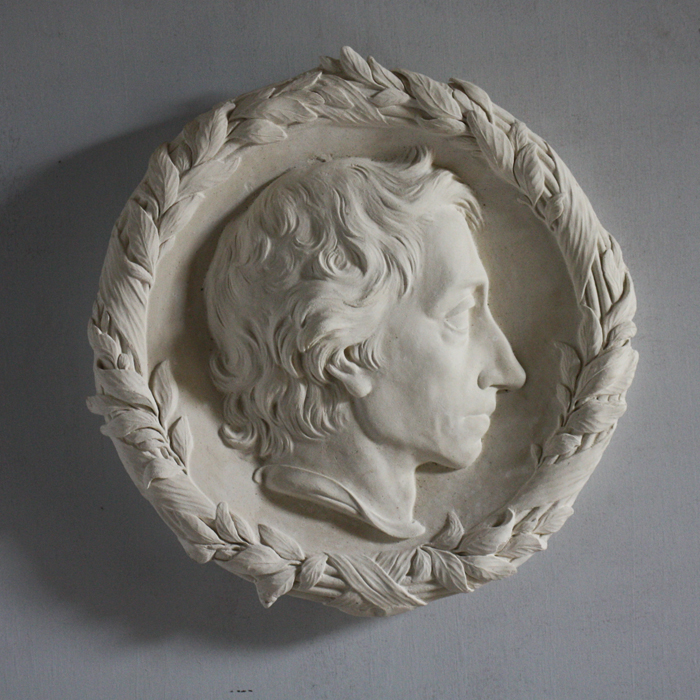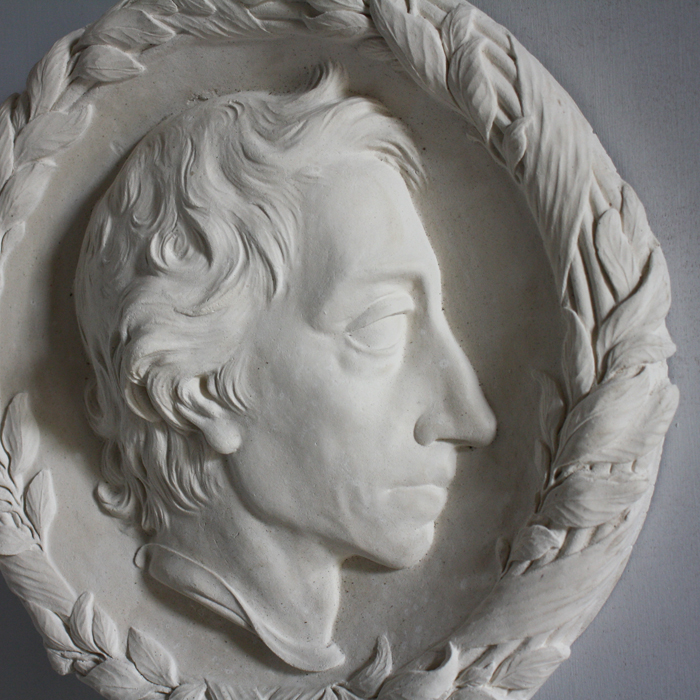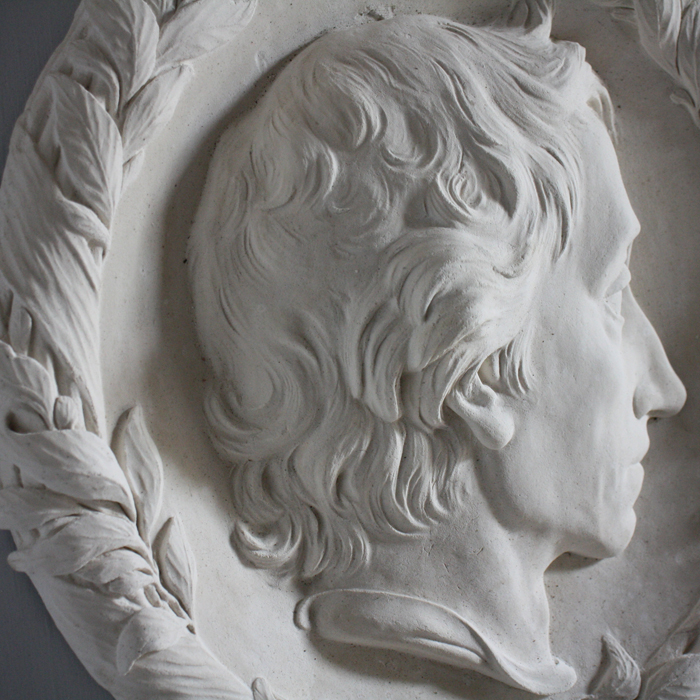An English relief-cast plaster portrait plaque of Alexander Pope
the roundel centred with a profile portrait of the poet, within a leafy border
£350
The acknowledged master of the heroic couplet and one of the primary tastemakers of the Augustan age, British writer Alexander Pope was a central figure in the Neoclassical movement of the early 18th century. He is known for having perfected the rhymed couplet form of his idol, John Dryden, and turned it to satiric and philosophical purposes. His mock epic The Rape of the Lock (1714) derides elite society, while An Essay on Criticism (1711) and An Essay on Man (1733–34) articulate many of the central tenets of 18th-century aesthetic and moral philosophy. Pope was noted for his involvement in public feuds with the writers and publishers of low-end Grub Street, which led him to write The Dunciad (1728), a scathing account of England’s cultural decline, and, at the end of his life, a series of related verse essays and Horatian satires that articulated and protested this decline.
Synopsis from The Poetry Foundation.



